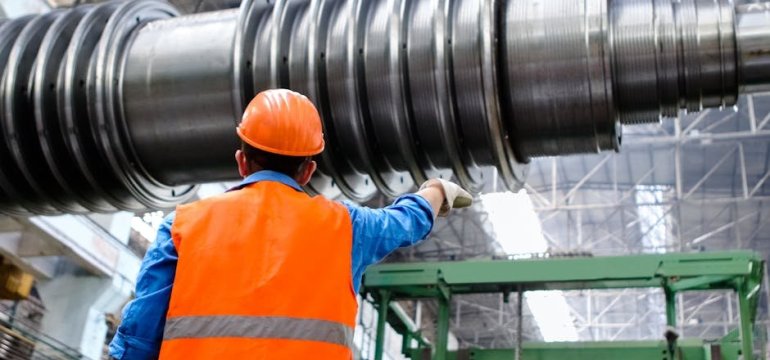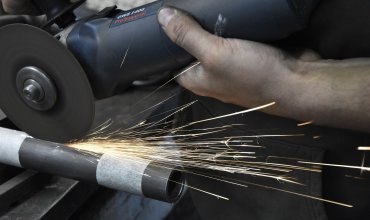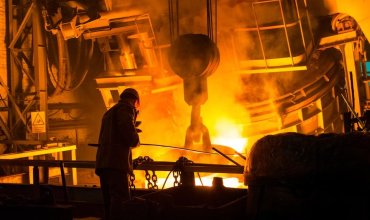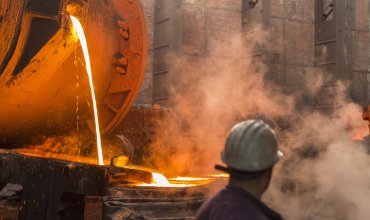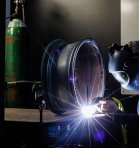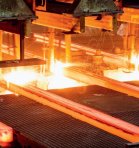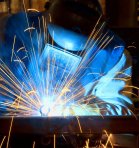Industrial metals play a key role in our daily lives. Although we don't always realize it, they are the foundation of many industries, from construction to electronics manufacturing. In Poland, as well as around the world, the metals industry is a driving force in the economy, influencing its development and competitiveness. In this article, we will take a closer look at industrial metals, their types, applications and importance to the Polish economy. We will also outline the challenges facing the metallurgical industry and the prospects for its development in the coming years.
Types of industrial metals and their properties
Steel - the foundation of construction and industry
Steel is one of the most important and widely used industrial metals. Steel consists mainly of iron, which is enriched with various additives, such as carbon, manganese, sulfur or phosphorus, for the desired properties. These additives give steel its strength, hardness and flexibility, making it an ideal material for a wide range of applications.
Steel is an indispensable material in the construction industry - from the supporting structures of buildings to bridges and road infrastructure. Its use is also reflected in the engineering industry, where it is used to manufacture tools, machinery and vehicles. What's more, steel plays a key role in the shipbuilding and railroad industries, serving as a basic structural material.
Corrosion resistance and extended service life make steel not only versatile, but also economical. In Poland, steel is produced by giants such as ArcelorMittal, which supplies the domestic market and exports its products around the world. Thanks to technological innovations, the Polish steel industry is becoming increasingly competitive on the international stage.
Aluminum - lightweight and versatile
Industrial metals include aluminum. It is a metal that, despite being relatively young, has won the hearts of industrialists thanks to its lightness and corrosion resistance. Aluminum is lighter than steel, making it an ideal material for the aerospace and automotive industries. Its low weight contributes to fuel savings, which in turn has a positive impact on the environment.
In Poland, aluminum production is mainly carried out in plants such as Grupa Kęty, which is one of the largest producers of aluminum products in Central Europe. Aluminum, in addition to the aerospace and automotive industries, is used in the production of packaging, electronics and in the construction industry, where it is used for windows, doors and building facades.
Copper - electrical conductivity at the highest level
Copper is another key representative of the industrial metals category. Its exceptional electrical conductivity makes it indispensable in the manufacture of cables, wires and electronic components. Copper also has good thermal and anti-corrosion properties, making it a versatile material.
Poland is one of the largest copper producers in the world, with KGHM Polska Miedź S.A. leading the industry. Copper is used not only in the electrical and electronics industries, but also in construction, plumbing and industrial production. Its recycling plays a key role in maintaining sustainability and minimizing environmental impact.
Zinc and lead - indispensable partners of steel structures
Zinc and lead, although less common than steel, aluminum or copper, are equally important industrial metals. Zinc, mainly used for electroplating steel, prevents its corrosion, extending the life of metal structures. Zinc is also used in the chemical and battery manufacturing industries.
Lead, on the other hand, is widely used in the manufacture of batteries, radiation shielding and in the chemical industry. Although its toxicity poses some challenges, it is an indispensable part of many industrial processes. In Poland, both metals are produced and refined primarily by metallurgical plants that adhere to strict environmental standards to minimize their impact on the environment.
Key applications of industrial metals in Poland
Construction industry - the foundation of Poland's infrastructure
The role of industrial metals in the construction industry cannot be overstated. Steel, aluminum, copper - all these metals are widely used in the creation of modern infrastructure. From bridges to skyscrapers to housing developments, industrial metals are the foundation on which the durability and safety of building structures are based.
The Polish market is seeing a growing demand for innovative materials that not only meet technical requirements, but are also ecological and durable. An example is the use of steel and aluminum in roof structures, building facades and in various types of installations. The demand for copper, mainly in electrical and plumbing installations, is also growing steadily.
Transportation and automotive - lightweight and strong
The transportation and automotive industries are other areas where industrial metals play a key role. In the construction of cars, airplanes or even bicycles, the lightness of aluminum and the strength of steel are invaluable. In Poland, vehicle manufacturers are increasingly turning to modern metal alloys to improve vehicle performance while reducing weight and fuel consumption.
An example is the production of aluminum components for the aerospace industry at companies such as PZL Mielec, which supplies parts around the world. The automotive industry is also seeing dynamic development and implementation of innovative materials, which is evidence of the growing competitiveness of Polish industry in the global market.
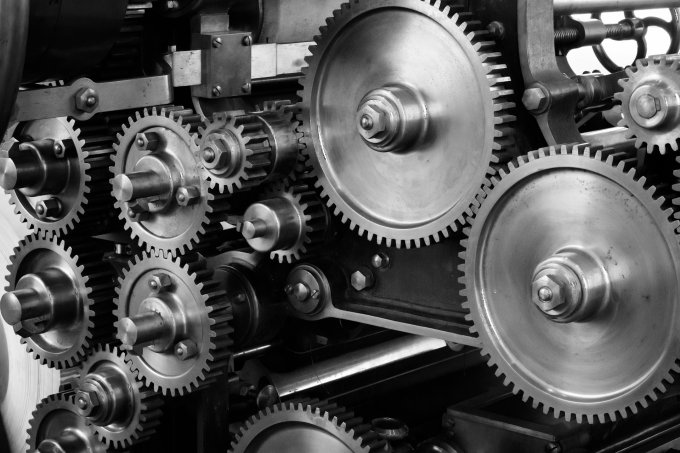
Electronics and power engineering - excellent conductivity
The use of industrial metals in electronics and power engineering is supported mainly by copper. Its excellent conductive properties make it an indispensable material for cables, wires and electronic components. With the growing demand for renewable energy and the development of electromobility technology, copper is playing an increasingly strategic role.
In Poland, KGHM Polska Miedź S.A. is the main supplier of this raw material, supporting both domestic and foreign projects with its product range. The development of renewable energy technologies, such as wind farms and solar panels, is also increasing demand for copper, demonstrating its growing importance for sustainable energy development.
Challenges and prospects for the development of the metallurgical industry in Poland
Environmental challenges and strategies for sustainable development
One of the biggest challenges facing the metals industry is the need to reduce its environmental impact. The production of industrial metals involves high energy consumption and emissions, which requires the implementation of innovative pro-environmental solutions.
In Poland, recycling and recovery of metals from waste is playing an increasingly important role. Companies such as RMA Poland, which specialize in metal recycling, contribute to reducing the consumption of natural resources and limiting CO2 emissions. Also, investments in new technologies, such as the production of "green steel" using renewable energy, are responding to today's environmental challenges.
Automation and technological innovation
Another challenge and at the same time an opportunity for the steel industry is automation and the introduction of new production technologies. The development of 4.0 technologies, such as robotics, 3D printing and advanced production management systems, makes it possible to increase manufacturing efficiency and precision, as well as to reduce costs and production times.
In Poland, more and more companies are investing in advanced technologies, which allows them to compete in the global market. An example is the investment in modern production lines at the plants of Huta Stalowa Wola, which has significantly improved their productivity and the quality of their products.
Labor market and education
The development of the metals industry also requires investment in human capital. A qualified workforce is crucial for implementing innovative technologies and maintaining a high level of production. There are a number of educational institutions and training programs that prepare future engineers and specialists for work in the industry.
Involvement of companies in training programs, cooperation with universities and investment in employee development are indispensable elements of development strategies. Only through continuous improvement of skills is it possible to remain competitive in a rapidly changing global market.
Summary
Industrial metals are an indispensable part of the modern world, playing a key role in industry, construction, transportation, energy and many other sectors. In Poland, the metals industry is one of the foundations of the economy, which is constantly developing and adapting to new challenges and technologies. Thanks to innovation, recycling and investment in human capital, the Polish metal industry is becoming increasingly competitive on the international stage.
In the face of environmental and technological challenges, the Polish metal industry has broad development prospects. Appropriate sustainable development strategies and investments in modern technology and education are key to further growth and maintaining competitiveness. Industrial metals will continue to play a key role in shaping the future of the economy, both in Poland and around the world.


